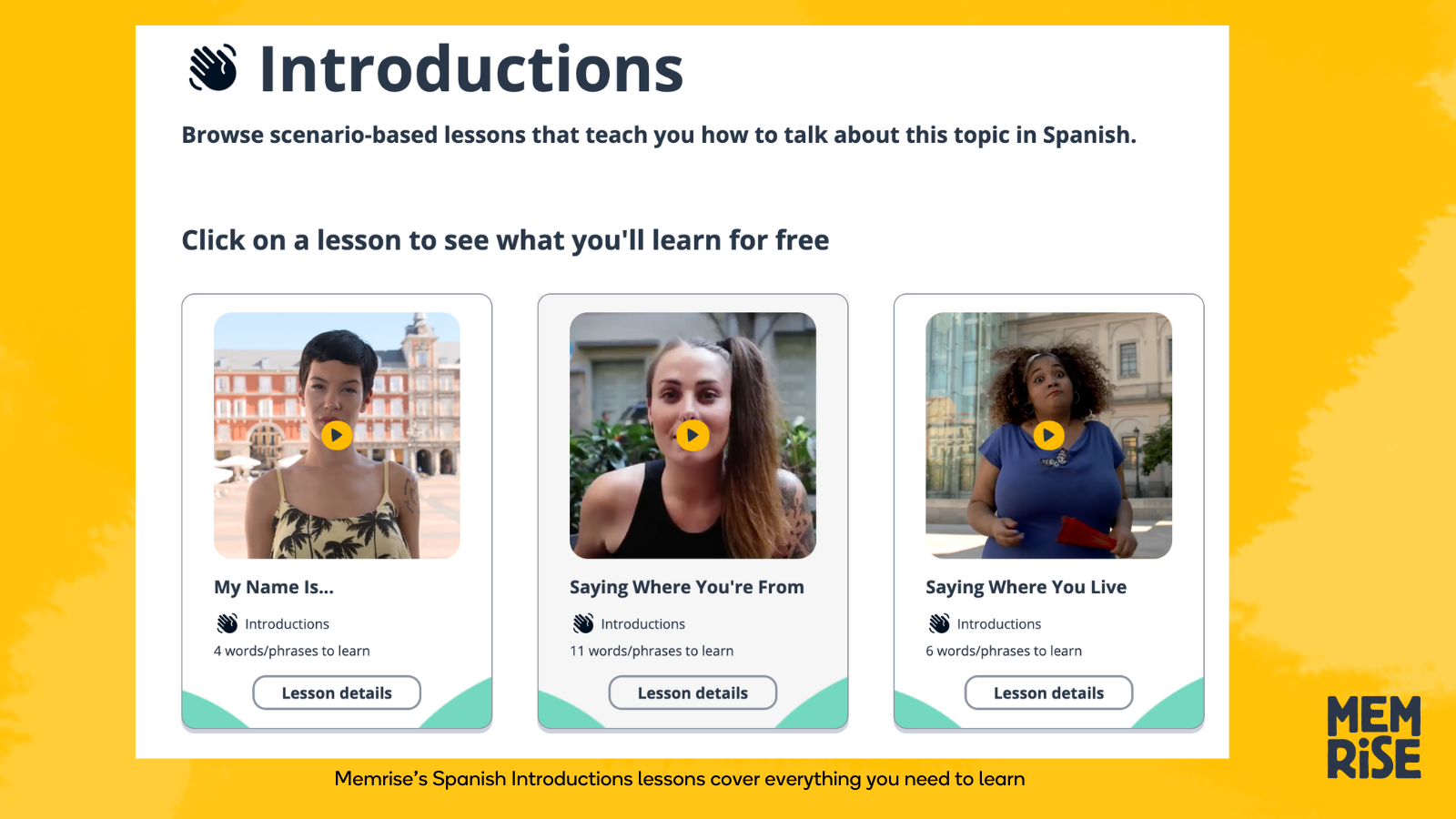Your Gateway to Significant Connections
Introducing your self is step one in any interplay, the important thing that unlocks the doorways to significant connections and friendships. In the case of studying a brand new language, Spanish is not any exception. On this weblog put up, we’ll discover the significance of mastering numerous facets of introducing your self and delve into totally different facets of this matter that may aid you navigate social interactions with confidence.
If you wish to grasp Spanish introductions, you’ll want to test our Spanish introductions web page, you’ll be able to browse the preferred classes now we have on this matter, from saying your title, revealing the place you are from, sharing the place you reside, discussing your age, or participating in formal introductions, we have got you coated.
Why Are Introductions Essential?
Introductions could look like small speak, however they’re your secret weapon on the planet of Spanish and a key to significant connections. They set a optimistic tone, break the ice, and come in useful in numerous conditions, from journey to enterprise conferences.
Saying Your Identify: “¿Cómo te llamas?”
Saying The place You Are From and The place You Reside: “¿De dónde eres?” and “¿Dónde vives?”
Speaking About Your Age: “¿Cuántos años tienes?”
Formal Introductions: “Encantado/a de conocerte.”
Why Formal Introductions Matter:
- “Encantado/a de conocerte.” This interprets to “Good to satisfy you” and is a well mannered and customary strategy to provoke a proper introduction.
- “Mucho gusto.” One other strategy to say “Good to satisfy you,” equally applicable in formal settings.
In formal conditions, contemplate the following pointers:
- Use Titles and Surnames: Tackle people with their title and surname, like “Señor García” or “Doctora López.”
- Agency Handshakes: An expert handshake with eye contact and a honest smile is normal.
- Preserve Formal Language: Tackle the individual as “usted” as an alternative of the casual “tú.”
Unlocking Connections in European Spanish
Introductions are your gateway to forming significant connections, enriching your language expertise, and opening doorways to memorable conversations. So, as you proceed your Spanish journey, keep in mind that introductions are extra than simply phrases; they’re the bridges to connections that may improve your journey in great methods. Should you’re desirous to follow and discover Spanish introductions additional, you’ll want to go to this Memrise web page on Spanish introductions.
¡Hasta pronto! (Till subsequent time!)


